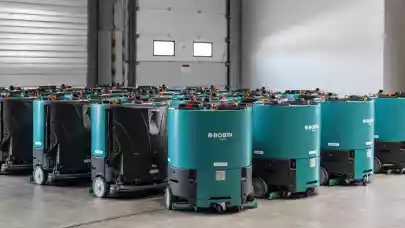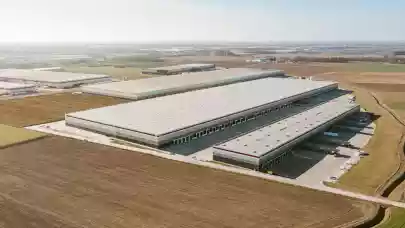
Croatia’s commercial real estate investment volume exceeded €290 million in H1 2021, according to a new report by Colliers.
The investment transaction volume of commercial real estate exceeded €290 million in H1 2021, which represents a 30% increase year-on-year. Colliers recorded a good number of deals despite the inability of some foreign investors to execute deals due to travel restrictions. In comparison to 2020, there is more certainty in many sectors and the investor sentiment is positive.
The hotel sector made up 69% of the total volume, which was followed by office transactions with a 20% share; followed by logistics with 7% and finally, by the retail sector with a 4% share. The average deal size in 2020 and H1 2021 was in the region of €9 million and €11 million, respectively, excluding portfolio deals. The demand for bigger tickets exceeds the supply.
New lending typically has become more strict with less favourable conditions for buyers. LTVs are under pressure. The clear focus for banks, similarly to investors, is the sustainability of the underlying income and tenant risk (or operational risks for trade-related properties). Debt underwriting has also been prolonged with extensive due diligence activity required by banks holding back deals from quick completion.
Foreign investors continue to drive the market
As in the last 10 years, foreign capital remained the main source of investments, accounting for 65% and 89% of deal value in 2020 and H1 2021, respectively. Local investors closed 55% of all deals in 2020, albeit with a smaller average volume per transaction-
The main source of foreign investors appeared to be closed-end funds, listed and private vehicles. Local capital mostly comprises individual investors, with a growing share of local pension funds (through indirect deals).
The most significant transaction in H1 2021 was the acquisition of Sunce Hoteli (BlueSun Hotels and Resorts brand) by the Croatian arm of UAE-based private RE investment and development company, Eagle Hills. Sunce Hoteli comprises 11 hotels and a camp in Dalmatia as well as its own airport and a large land bank on the Island of Brač. With this transaction, Eagle Hills proved its interest to expand further across the SEE region.
In 2020, Hungarian investors represented 26% of the total investment volume on the buy side coming in first, mostly as a result of Optima’s purchase of GTC portfolio. Strong activity was also recorded by investors from Austria (13%), Germany (10%) and the USA (7%).
In H1 2021, apart from Eagle Hills, notable transaction activity was also seen by M7 and Wiener osiguranje (Vienna Insurance Group) who closed deals in the logistics and office sectors, respectively.
Despite “work from home” trends, offices will remain the primary asset target and leading sector in the number of transactions.
Momentum has accelerated for logistics, which is among the top two wishes of investors across Croatia. Limited existing products and the anticipation of further asset value appreciation in the coming years are key demand drivers.
Although retail and hospitality assets are currently the least preferred assets for investors globally, this is not the case in Croatia, where investors are looking at opportunities to acquire core assets. Investors were expecting to see pricing discounts in these sectors, but so far, the majority of the vendors were able to achieve pre-COVID levels. This has been mostly a result of demand exceeding the supply, coupled with positive expectations for the sectors.
The pricing might change for the properties with liquidity issues related to the pandemic measures and high leverage. We anticipate many of these deals to originate indirectly via corporate acquisitions and non-performing loans (NPLs).
Yield evolution and outlook
The uncertainty caused by the COVID-19 pandemic had an impact on yield expectations as well, especially on the properties in the hotel segment while prime offices and grocery-anchored retail properties in core locations were the least impacted.
The industrial and logistics sector is seen as the real ‘winner’ of the crisis and a safe haven for investors, given massive occupational demand for new space. The newly built investment properties in good locations will likely see yields in the region of 7.0%.
Due to limited opportunities and strong competition to acquire core assets, the challenge for many investors is effectively deploying the capital they have built up. This is expected to lead to a broadening the type and risk profile of assets they target in response, supporting core-plus and value-add strategies.
Croatian GDP picked up in Q1 2021 by 5.8% compared to the previous quarter. With stable employment levels, low interest rates and infrastructure investments, the economic recovery should remain robust. Croatia is also expected to enter eurozone and Schengen in the next two years. That should drive further yield compression across the majority of sectors.



